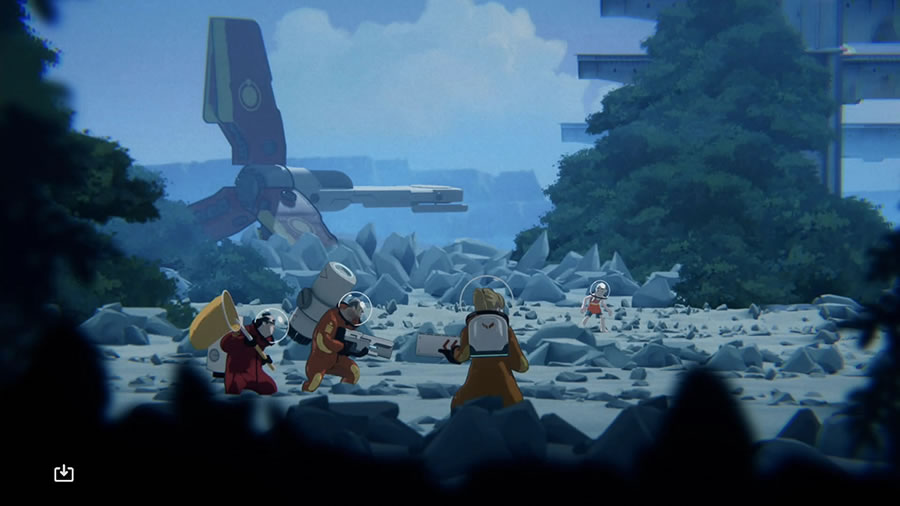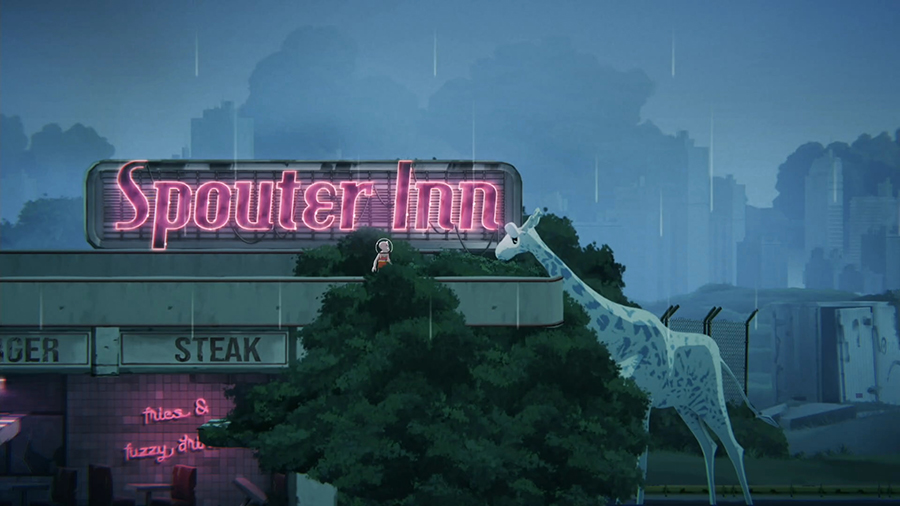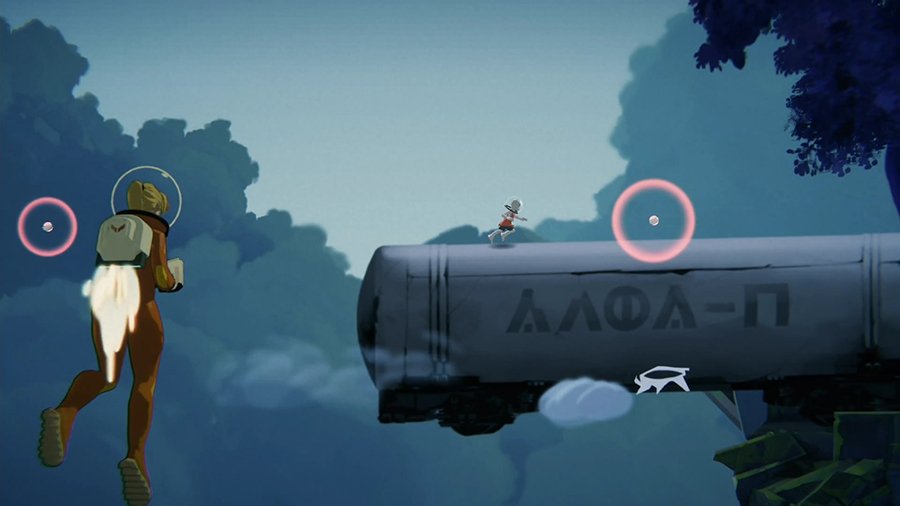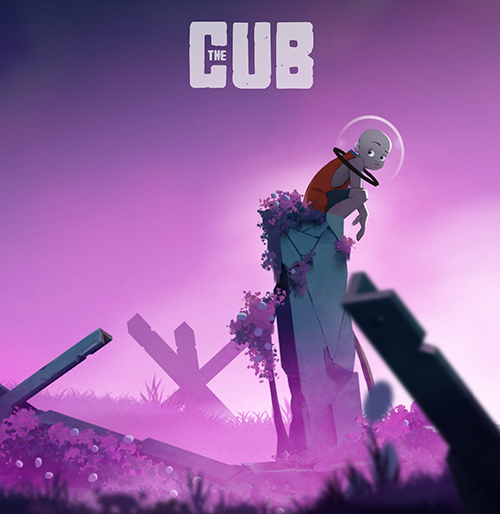- CLASSIC MAGAZINES
- REVIEW CREW
A show recapping what critics thought back
when classic games first came out! - NEXT GENERATION'S BEST & WORST
From the worst 1-star reviews to the best
5-stars can offer, this is Next Generation! - NINTENDO POWER (ARCHIVE)
Experience a variety of shows looking at the
often baffling history of Nintendo Power! - MAGAZINE RETROSPECTIVE
We're looking at the absolutely true history of
some of the most iconic game magazines ever! - SUPER PLAY'S TOP 600
The longest and most ambitious Super NES
countdown on the internet! - THEY SAID WHAT?
Debunking predictions and gossip found
in classic video game magazines! - NEXT GENERATION UNCOVERED
Cyril is back in this spin-off series, featuring the
cover critic review the art of Next Generation! - HARDCORE GAMER MAGAZING (PDF ISSUES)
Download all 36 issues of Hardcore Gamer
Magazine and relive the fun in PDF form!
- REVIEW CREW
- ELECTRONIC GAMING MONTHLY
- ELECTRONIC GAMING MONTHLY RANKS
From Mario to Sonic to Street Fighter, EGM
ranks classic game franchises and consoles! - ELECTRONIC GAMING MONTHLY BEST & WORST
Counting down EGM’s best and worst reviews
going year by year, from 1989 – 2009! - ELECTRONIC GAMING BEST & WORST AWARDS
11-part video series chronicling the ups and
downs of EGM’s Best & Worst Awards!
- ELECTRONIC GAMING MONTHLY RANKS
- GAME HISTORY
- GAME OVER: STORY BREAKDOWNS
Long-running series breaking down game
stories and analyzing their endings! - A BRIEF HISTORY OF GAMING w/ [NAME HERE]
Real history presented in a fun and pithy
format from a variety of game historians! - THE BLACK SHEEP
A series looking back at the black sheep
entries in popular game franchises! - INSTANT EXPERT
Everything you could possibly want to know
about a wide variety of gaming topics! - FREEZE FRAME
When something familiar happens in the games
industry, we're there to take a picture! - I'VE GOT YOUR NUMBER
Learn real video game history through a series
of number-themed episodes, starting at zero! - GREAT MOMENTS IN BAD ACTING
A joyous celebration of some of gaming's
absolute worst voice acting!
- GAME OVER: STORY BREAKDOWNS
- POPULAR SHOWS
- DG NEWS w/ LORNE RISELEY
Newsman Lorne Riseley hosts a regular
series looking at the hottest gaming news! - REVIEW REWIND
Cyril replays a game he reviewed 10+ years
ago to see if he got it right or wrong! - ON-RUNNING FEUDS
Defunct Games' longest-running show, with
editorials, observations and other fun oddities! - DEFUNCT GAMES QUIZ (ARCHIVE)
From online quizzes to game shows, we're
putting your video game knowledge to the test!- QUIZ: ONLINE PASS
Take a weekly quiz to see how well you know
the news and current gaming events! - QUIZ: KNOW THE GAME
One-on-one quiz show where contestants
find out if they actually know classic games! - QUIZ: THE LEADERBOARD
Can you guess the game based on the classic
review? Find out with The Leaderboard!
- QUIZ: ONLINE PASS
- DEFUNCT GAMES VS.
Cyril and the Defunct Games staff isn't afraid
to choose their favorite games and more! - CYRIL READS WORLDS OF POWER
Defunct Games recreates classic game
novelizations through the audio book format!
- DG NEWS w/ LORNE RISELEY
- COMEDY
- GAME EXPECTANCY
How long will your favorite hero live? We crunch
the numbers in this series about dying! - VIDEO GAME ADVICE
Famous game characters answer real personal
advice questions with a humorous slant! - FAKE GAMES: GUERILLA SCRAPBOOK
A long-running series about fake games and
the people who love them (covers included)! - WORST GAME EVER
A contest that attempts to create the worst
video game ever made, complete with covers! - LEVEL 1 STORIES
Literature based on the first stages of some
of your favorite classic video games! - THE COVER CRITIC
One of Defunct Games' earliest shows, Cover
Critic digs up some of the worst box art ever! - COMMERCIAL BREAK
Take a trip through some of the best and
worst video game advertisements of all time! - COMIC BOOK MODS
You've never seen comics like this before.
A curious mix of rewritten video game comics!
- GAME EXPECTANCY
- SERIES ARCHIVE
- NINTENDO SWITCH ONLINE ARCHIVE
A regularly-updated list of every Nintendo
Switch Online release, plus links to review! - PLAYSTATION PLUS CLASSIC ARCHIVE
A comprehensive list of every PlayStation
Plus classic release, including links! - RETRO-BIT PUBLISHING ARCHIVE
A regularly-updated list of every Retro-Bit
game released! - REVIEW MARATHONS w/ ADAM WALLACE
Join critic Adam Wallace as he takes us on a
classic review marathon with different themes!- DEFUNCT GAMES GOLF CLUB
Adam Wallace takes to the links to slice his way
through 72 classic golf game reviews! - 007 IN PIXELS
Adam Wallace takes on the world's greatest spy
as he reviews 15 weeks of James Bond games! - A SALUTE TO VAMPIRES
Adam Wallace is sinking his teeth into a series
covering Castlevania, BloodRayne and more! - CAPCOM'S CURSE
Adam Wallace is celebrating 13 days of Halloween
with a line-up of Capcom's scariest games! - THE FALL OF SUPERMAN
Adam Wallace is a man of steel for playing
some of the absolute worst Superman games! - THE 31 GAMES OF HALLOWEEN
Adam Wallace spends every day of October afraid
as he reviews some of the scariest games ever! - 12 WEEKS OF STAR TREK
Adam Wallace boldly goes where no critic has
gone before in this Star Trek marathon!
- DEFUNCT GAMES GOLF CLUB
- DAYS OF CHRISTMAS (ARCHIVE)
Annual holiday series with themed-episodes
that date all the way back to 2001!- 2015: 30 Ridiculous Retro Rumors
- 2014: 29 Magazines of Christmas
- 2013: 29 Questionable Power-Ups of Christmas
- 2012: 34 Theme Songs of Christmas
- 2011: 32 Game Endings of Christmas
- 2010: 31 Bonus Levels of Christmas
- 2009: 30 Genres of Christmas
- 2008: 29 Controls of Christmas
- 2007: 34 Cliches of Christmas
- 2006: 33 Consoles of Christmas
- 2005: 32 Articles of Christmas
- 2004: 31 Websites of Christmas
- 2003: 29 Issues of Christmas
- 2002: 28 Years of Christmas
- 2001: 33 Days of Christmas
- NINTENDO SWITCH ONLINE ARCHIVE
- REVIEW ARCHIVE
- FULL ARCHIVE
The Cub
A few years ago, I reviewed a side-scrolling sports game called Golf Club: Wasteland (which is now known as Golf Club: Nostalgia after a name change). It was a fun and unique title about an astronaut returning to a post-apocalyptic Earth to play one last round of golf. I loved the concept, the atmosphere and the amazing world building so much that I came away a little disappointed that the experience was little more than a golf game. Now, much to my surprise and joy, developer Demagog Studio has created a bigger and more ambitious spin-off called The Cub that completely ditches the golfing in favor of a Jungle Book-inspired story set during armageddon. It’s an action/platformer starring a feral child that finally gives you a chance to explore this long-abandoned planet and uncover its many secrets. Is this the post-apocalyptic game I wanted all along or was I better off golfing? That’s what we’re about to find out when I review The Cub.
The Cub is the kind of game that wears its inspirations on its sleeve. Before you even play the game, you’re being told that it’s The Jungle Book meets the armageddon and that it’s a side-scrolling action game that takes its cues from classic Virgin Interactive games, like Aladdin, The Lion King and, obviously, The Jungle Book. And while all of that is accurate and maybe even a great way to get people interested in your post-apocalyptic game, I can’t help but feel like that is selling The Cub a bit short.
You play a young, feral boy who has seemingly adapted to Earth’s presumably toxic air. We don’t know much about his past, but given how often the game references The Jungle Book, we’re led to believe that he was raised among the wolves and re-learned English from listening to radio broadcasts from Mars. That is, after all, where all of the Earthlings escaped to when the bombs started dropping. Now, those same Earthlings are funding expeditions back to their former home to conduct research and bring back samples.
Things get a bit sticky for our hero when the newest group of Martians realize that there’s a feral child on Earth and they need to catch him. Not only would they get a big promotion if they brought a kid back to Mars, but it might help in researching why some people can breathe on Earth and others can’t. No matter if it’s for science or selfish motives, this trio of astronauts are on a mission to capture the kid, and you’re going to spend most of this game making sure that doesn’t happen.
Like I said at the top, this is a side-scrolling platformer that is inspired by 16-bit adaptations of popular Disney movies, like Aladdin and The Jungle Book. The gameplay is surprisingly simple, since our hero doesn’t really have much in the way of attacks. He’ll run, he’ll slide, he’ll swing, he’ll climb, he’ll push things around and he’ll double jump, and that’s about it. Later in the game he’ll need to dash through doors and windows, and there’s a move introduced midway through where you will glide down to safety. There’s no hacking or slashing or fighting back, which separates this from a lot of the action games that inspired it.
The real star here isn’t the gameplay or even the story, but rather it’s the amazing world the developers have constructed. This was, after all, the best part of the original, too. From the locations I remember from the first game to the new wide-open landscapes full of wildlife, this is a version of Earth that you won’t soon forget. There’s a real attention to detail in every location, from the bodies strewn about to the way everything was left before the bombs fell, the whole thing is both eerie and beautiful.
What I love the most about this post-apocalyptic world is how varied it is. This is not one of those games that hits you over the head with the same types of locations over and over. Even though the game is only a few hours long, you’ll feel like you went on a real journey. Parts of this world are funny, parts are scary and there are even a few parts that are breath-taking, and it all works because our hero is constantly on the run. The golf game merely hinted at a long-abandoned world, while this spin-off goes out of its way to flesh things out in a big way. This is a masterclass in world building, and almost all of it is conveyed through nothing more than small details in the lovely visuals.
Another thing that the original golf game did so well was the soundtrack, which comes in the form of a radio station broadcast from Mars. The Cub handles the music in the exact same way. This is an interesting mix of catchy tunes and information about life on the new planet. From time-to-time, you’ll hear interviews with those who escaped Earth, waxing nostalgic about what they miss and longing for the people they’ll never see again. This is all handled extremely well, often to the point of making me feel a bit nostalgic for a planet I’m currently living on. I love how the little details help to make this post-apocalyptic world feel more real and lived in. And the music is incredible. It’s perfectly timed to hit you when you’re least expecting it, and some of the choices they make will leave a real impact on you.
One of the things I had forgotten about Golf Club: Nostalgia was how melancholy the experience was. After getting over the high of golfing on an abandoned planet, you were forced to come to grips with the astronaut’s loneliness and why he traveled back in the first place. It had a surprisingly emotional back half, and the same is true in The Cub. After a playful start, you’ll start to get invested in this feral kid and his day-to-day struggles. The game is good about slowing things down to show you the emotional toll all this is having, and I like that the story isn’t afraid to go in a dark direction.
As a game, I prefer this over the original golf game. It expands on the world in important ways and does an excellent job of fleshing out the story and characters. That said, I do wish there was a little more to the gameplay and puzzles. Most of this game is so straight-forward that you won’t have to think much about traversing the levels. The puzzle stuff is mostly tied to finding the various collectible items, which is completely optional. We’re often in such a hurry to get from one location to the next that we rarely have time to slow down and solve real brain-teasers. That’s something this game is sorely missing, especially in light of it not having any real combat.
I’m also not sure if this story will hit as hard if you haven’t played Golf Club: Nostalgia. Some of the game’s most emotional bits are all tied to things from that first game, and new players may be confused why everybody is spending so much time talking about golf. For me, learning that this is a direct continuation of that other game came as a complete surprise, and you should have seen my delighted face as I stumbled my way into locations from the first outing. Discovering this set up a series of expectations that you might not have if you’re coming into this game new to the series. I definitely recommend playing The Cub, but you may want to check out the golf game first.
No matter if you’re a fan of The Jungle Book, those classic Genesis games or even Golf Club: Nostalgia, you owe it to yourself to experience The Cub. This is a fun and very playable side-scrolling platformer with a lot of personality and a surprising amount of emotion. This is yet another great game from Demagog Studio, who has already announced a third part of this series called Highwater. If it’s anywhere as good as their first two titles, then we’re in for a real treat.
HOME |
CONTACT |
NOW HIRING |
WHAT IS DEFUNCT GAMES? |
NINTENDO SWITCH ONLINE |
RETRO-BIT PUBLISHING
Retro-Bit |
Switch Planet |
The Halcyon Show |
Same Name, Different Game |
Dragnix |
Press the Buttons
Game Zone Online | Hardcore Gamer | The Dreamcast Junkyard | Video Game Blogger
Dr Strife | Games For Lunch | Mondo Cool Cast | Boxed Pixels | Sega CD Universe | Gaming Trend
Game Zone Online | Hardcore Gamer | The Dreamcast Junkyard | Video Game Blogger
Dr Strife | Games For Lunch | Mondo Cool Cast | Boxed Pixels | Sega CD Universe | Gaming Trend
Copyright © 2001-2025 Defunct Games
All rights reserved. All trademarks are properties of their respective owners.
All rights reserved. All trademarks are properties of their respective owners.






































